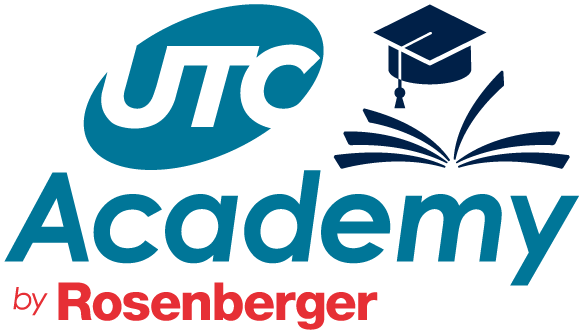Creating Impactful Course Titles
In the rapidly evolving world of online learning, particularly within the utility and critical infrastructure industry, a course title is far more than a mere label. It's a critical first touchpoint that can make the difference between a learner clicking "enroll" or scrolling past.
Mar 31
/
Academy Team
back to Blog
The Art and Science of Creating Impactful Course Titles in Technical Education
In the rapidly evolving world of online learning, particularly within the utility and critical infrastructure industry, a course title is far more than a mere label. It's a critical first touchpoint that can make the difference between a learner clicking "enroll" or scrolling past.
The Silent Power of a Well-Crafted Title
Imagine walking into a technical conference. Would you attend a session called "Some Grid Stuff" or "Smart Grid Cybersecurity: Protecting Critical Infrastructure"? The title isn't just words—it's an invitation, a promise, and a preview of the knowledge journey ahead.
Why Titles Matter More Than You Think
Titles serve multiple crucial functions in online education:
- They act as a first filter for potential learners
- They communicate the depth and specificity of course content
- They help professionals quickly assess learning relevance
- They improve discoverability in search results
Decoding the Perfect Technical Course Title
Crafting an exceptional title requires a delicate balance of precision, clarity, and strategic communication. It's not about being clever—it's about being crystal clear.
The Anatomy of an Effective Title
Consider a title like "Advanced Private LTE Network Design for Utility Professionals". Let's break down why this works:
- Skill Level Indication: "Advanced" immediately tells experienced professionals this isn't a beginner course
- Specific Technology: "Private LTE Network" shows exact technical focus
- Industry Context: "for Utility Professionals" narrows the target audience
- Implied Value Proposition: Suggests practical, specialized knowledge
Common Pitfalls to Sidestep
Not all titles are created equal. Some common mistakes can instantly turn off potential learners:
Marketing Hype Traps
- "Become a Grid Master in 30 Days!"
- "Unlimited Power: Utility Secrets Revealed!"
- Overpromising without substantive content
Technical Communication Mistakes
- Using excessive jargon without context
- Being too vague or generic
- Failing to specify skill level or practical application
Psychological Triggers in Title Creation
- Specificity builds trust
- Clear outcomes demonstrate value
- Professional language signals credibility
- Precise scope reduces learning uncertainty
Real-World Title Transformation
Let's see a title evolution:
The transformed title now:
- Before: "Grid Stuff Course"
- After: "Cybersecurity Fundamentals for Smart Grid Infrastructure"
The transformed title now:
- Specifies the exact topic
- Indicates skill level (fundamental)
- Clarifies target industry
- Promises concrete learning outcomes
Technical Education: More Than Just Words
A title in the utility and critical infrastructure sector isn't just marketing—it's a professional commitment. It represents the rigorous, precise nature of the industry itself.
Your Title as a Professional Statement
When you craft a course title, you're not just selling a learning experience. You're:
- Demonstrating industry expertise
- Signaling professional standards
- Creating a bridge between current knowledge and future skills
Final Thoughts
In an
industry where precision can mean the difference between operational efficiency
and potential infrastructure vulnerability, your course title is your first
line of professional communication.
Choose wisely. Be specific. Be clear. Be professional.
Who we are
Utilities Technology Council
2550 South Clark Street
Suite 960, Arlington, VA 22202
Policy Pages
Connect with us
Subscribe to get our latest news
Thank you!
Copyright © 2025
Subscriptions Not Available Yet
We're still building up our content – and it's going to be worth the wait!
Subscriptions aren’t open just yet, but you can leave your email address below and we’ll notify you as soon as they become available.
Thank you!
